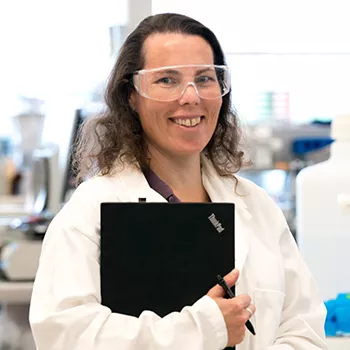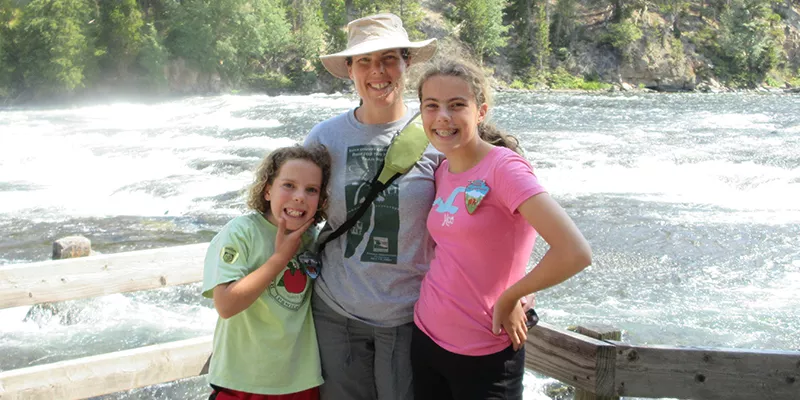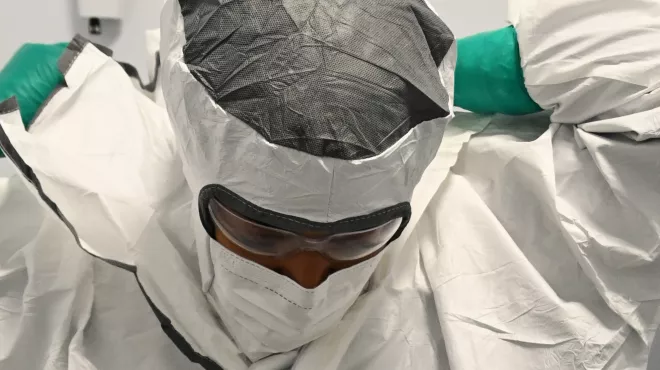
Jennifer Allport-Anderson, a cardiovascular researcher at the Novartis Institutes for BioMedical Research (NIBR), reflects on her career in this installment of “Novartis Presents: Women in Science.”
What personal qualities have you found to be most useful in achieving your goals?
Passion – it's important for people to work on something they’re passionate about. It would behoove people not to make career decisions on how much money they can make. It doesn't make you happy.
Also, being persistent. Science is hard, it’s not an easy job that we have, so you have to be persistent and optimistic. I’m generally optimistic, glass half full…and humble. Humility is important. In the vast conglomeration of things, I know very little, and everybody has value. It doesn’t matter if you just got here [to Novartis] or have been here for 30 years – you should be learning. And I learn from my [colleagues] all the time.
If you are truly passionate about something, you will make it happen.
Jennifer Allport-Anderson, Director, Cardiovascular Research
What are some of the decisions you’ve made that helped you advance into a leadership position?
I believe you should do something that you want to do. Take opportunities, risks – maybe small ones at first – but be selective. I’m not a believer that you should take every opportunity. It’s distracting and unfocused. Take opportunities that appeal to you and where you think you can learn something you don’t already know. I definitely concur with lateral moves. Getting exposure to other environments and other ways of thinking is hugely valuable.
As for choices I’ve made: putting other people first, giving credit to others. It’s people who do the work; it doesn’t do itself. When you credit others, you will get reward from that, taking pleasure in other people’s success. And it will come back to you 10 times over. I’ve never been concerned about personal credit; I just did what I liked doing and applied it to a need.
People who get caught up in credit – I don’t think they’re satisfied. It doesn’t make you happy. So you get the promotion, now what? Focusing on material things means there’s always one next thing. It’s not personally rewarding.
What is the best piece of career advice you have received that you’d pass on to others?
No decision is a life sentence – you can change your mind. Once when I considered jumping ship, I went to a longtime mentor, and he said, “Jen, this is not the last decision you’ll ever make. If you hate it, you can change your mind.” And he is so right.

What will you take a stand for so that others can achieve their goals?
Some things are obvious: zero tolerance for inequality or discrimination, sexual harassment. I will call someone out in a heartbeat if I observe it. I am not nervous to speak up. We should be providing support systems for colleagues, especially in child-rearing years. I had both kids while working, I came to work while breastfeeding, and we need to talk with women about how to manage those years. I am a better mother because I come to work and a better manager because I am a mother.
We all have to stop worrying about and trying to control everything. People need autonomy and freedom. At the end of the day, it’s about trust. Everyone has the best intentions until proven otherwise – that’s the attitude with which I go into every situation.
Jennifer Allport-Anderson, one of our #WomenInScience, credits some of her success to passion, persistence and optimism.



